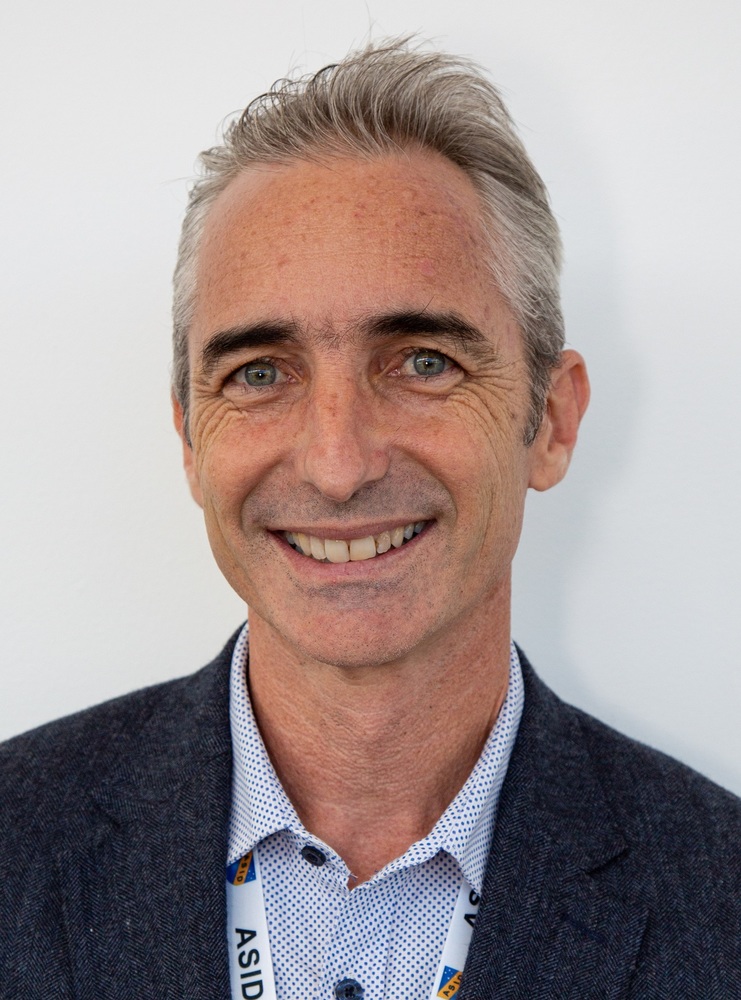
In the first of a new series profiling Taskforce members, we catch up with Professor Josh Davis. An Infectious Diseases physician at Newcastle’s John Hunter Hospital and researcher at Menzies School of Health Research, Josh also co-leads the Australasian COVID-19 Trial (ASCOT). He is a former president of the Australasian Society for Infectious Diseases (ASID) and a founding member of the National COVID-19 Clinical Evidence Taskforce on the Disease-Modifying Treatment and Chemoprophylaxis Panel.
The term ‘tiger country’ refers to a figurative place of threat or danger that requires expert skill and care to safely navigate. While it’s often used to describe complex surgical procedures, Josh Davis uses it to describe the broader clinical landscape in the midst of this global pandemic. As the race for knowledge, proven treatments and a vaccine continues to unfold against a backdrop of widespread uncertainty, controversy has engulfed even the world’s most prestigious medical journals. Taken together, this represents especially difficult terrain for clinicians to traverse – and throws the critical role of the National COVID-19 Clinical Evidence Taskforce into sharp relief.
‘The past six months have been a whirlwind for all of us,’ Josh says. ‘But if you take a step back for a minute, you can see that there have been some really significant achievements for the Taskforce. The first and most striking one being that it brought so many leading experts together so quickly. The process of establishing expert panels usually takes many months – just getting the right people together and aligning diaries. But in the course of just a few weeks back in April, busy clinicians and different peak bodies from right across primary, acute and critical care not only came together, they also set aside all previous histories, conflicts and vested interests pretty much overnight. We all shared this immediate and really unified focus on doing something that has never been done before – producing near-real time living guidelines to Australian clinicians in a challenging and rapidly changing environment. Just six months on, the Taskforce numbers 31 peak bodies and over 200 experts from across the country and we’re delivering on that each and every week.’
‘This is extraordinary – and due in no small part to our genuine independence, given the Taskforce isn’t funded by pharmaceutical companies or based within a particular member organisation. This has really reinforced our ability and capacity to work together to provide a single, trusted source of cross-disciplinary evidence and guidance. While governments and philanthropic organisations do provide funding, the Taskforce is truly independent. So clinicians, policy makers and the public can all have real confidence in our assessments and recommendations.’
To this end, earlier this month Health Minister Greg Hunt announced a new partnership between the Taskforce and the Infection Control Expert Group (ICEG) with the aim of providing guidelines on specific – and often very contentious – infection control issues that have emerged throughout this year. This represents a significant broadening of scope for the Taskforce, which to date has focused squarely on clinical care for Australians with COVID-19.
‘Infection control wasn’t initially a focus for the Taskforce, our remit was to develop evidence-based recommendations for clinical care,’ Josh explains. ‘The nature of infection control evidence differs too, making guidelines more difficult to produce. For example, when we look at clinical treatments we draw on findings from large scale randomised controlled trials (RCTs) – but when it comes to questions around Personal Protective Equipment (PPE) for instance, RCTs are very difficult to conduct and that kind of evidence is rarely available, making the process of developing consensus both critical and challenging.’
‘While these kinds of challenges around quality of evidence and how best to use it continue to confront us all, I’m glad that at this point the Taskforce is able to join with ICEG to lend extensive infrastructure, expertise and support to help bolster ongoing efforts to develop recommendations in this critical area. As we’ve seen with clinical care and research, it’s impossible for any one person or organisation to synthesize the absurd amount of evidence now being published daily on COVID-19. The Taskforce Evidence Team enables this essential work to be undertaken around the clock.’
As well as delivering clear, accessible and timely evidence summaries, guidelines and flowcharts for clinicians, Josh also sees a role for the Taskforce in contributing to public understanding and ensuring health information is both accessible and accurate.
‘Unfortunately, as we’ve seen so often lately, the communication of important health information often gets entangled in a debate between people with very strongly held views. As clinicians, we really need to counter and balance this with trusted information and evidence.’
Josh himself is no stranger to this kind of work, having recently been called on both to answer common COVID-19 questions from Daily Telegraph readers and to comment on Clive Palmer’s health claims for ABC Fact Checkers. He has also played a prominent role in shining a light on academic publishing practices and papers, as one of the first Australian researchers to write to the Lancet querying the fraudulent data underpinning its now infamous (and retracted) hydroxychloroquine study that many believe has damaged public trust in science.
Despite examples of debates that question science, Josh still finds cause for hope and optimism. ‘On the upside, I think the general public now has a much greater awareness of many concepts and terms that were really unknown before the pandemic – such as the epidemiology of infectious diseases, for example airborne spread versus droplets. I think this shows we can play a positive role in raising health literacy and countering misinformation. This is a real focus, alongside that of meeting the needs of frontline clinicians.’
And with these clear aims in mind, Josh and his many fellow Taskforce members will continue to help clinicians and the community alike navigate our collective way through the tiger country of COVID-19 and beyond.